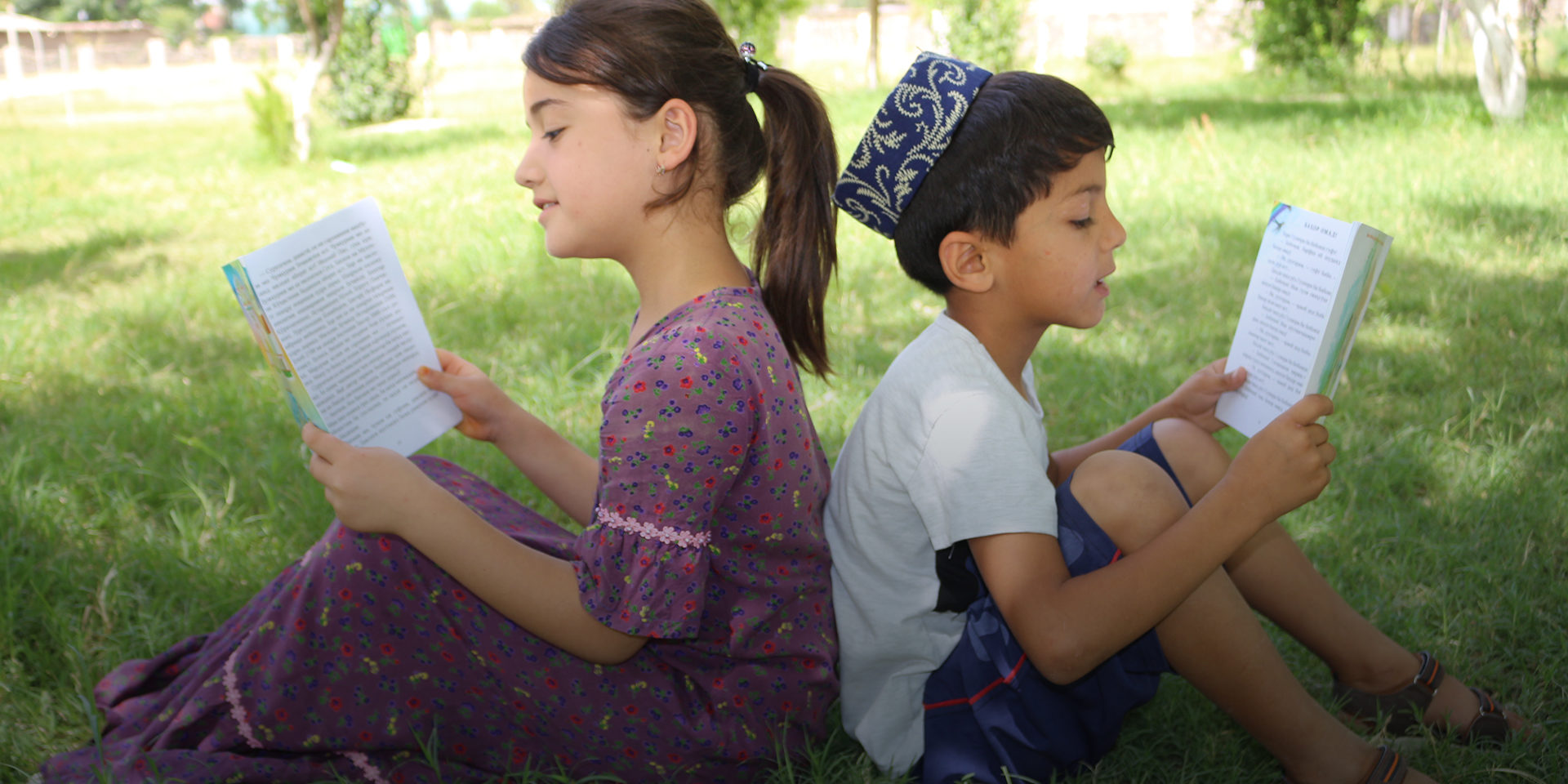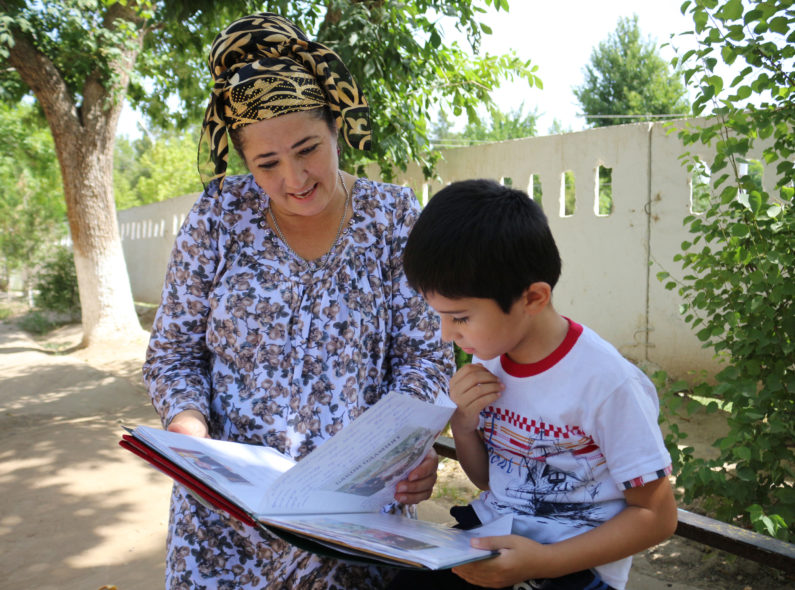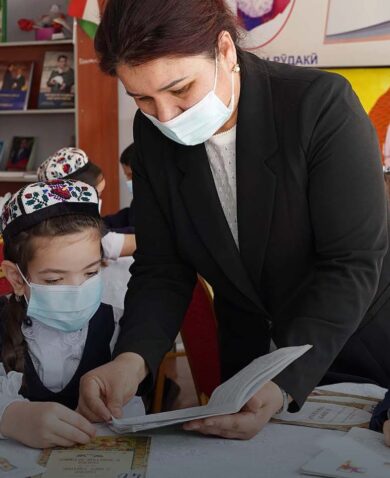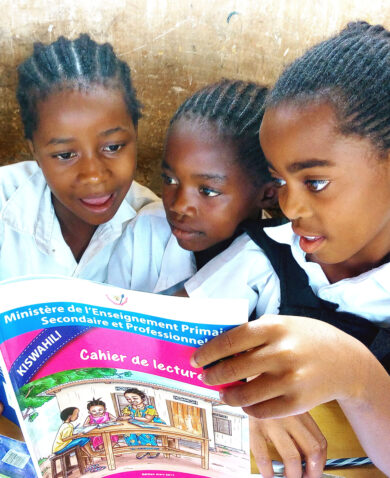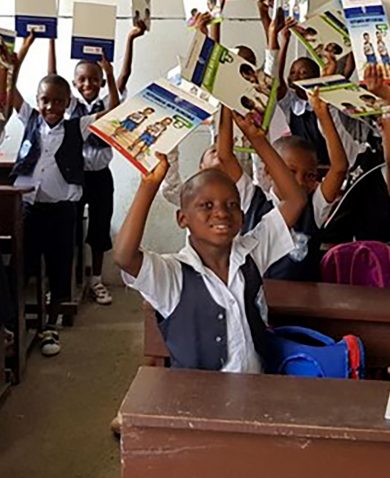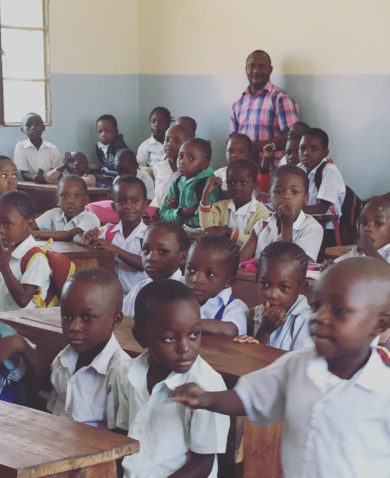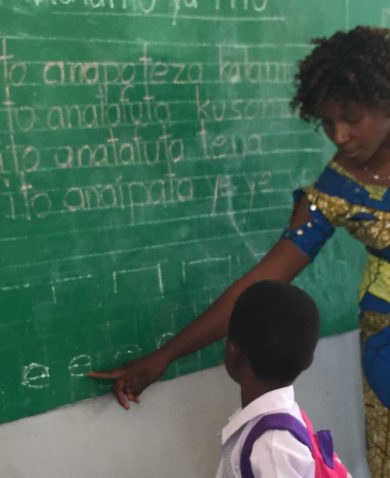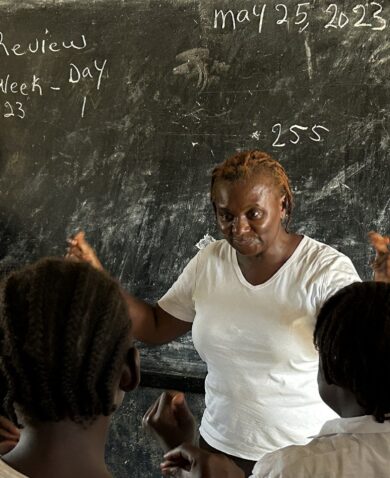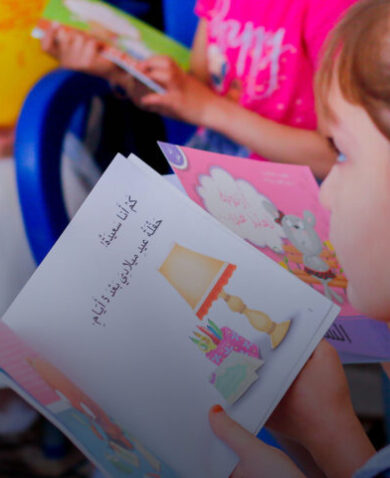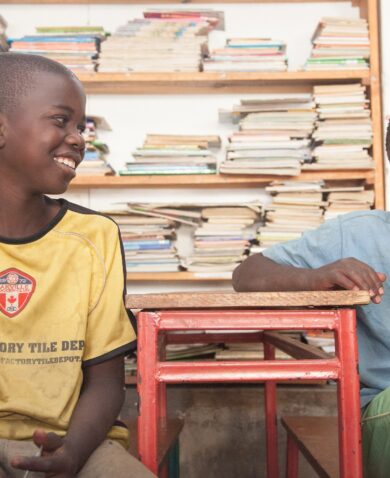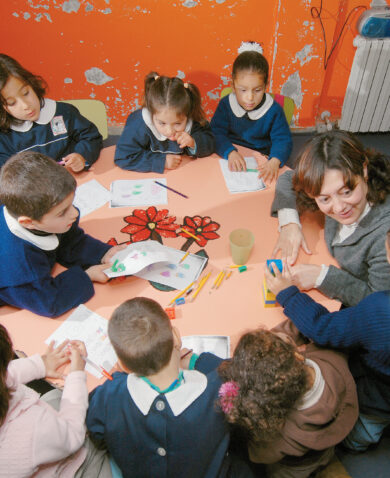Summer Camps and a Training Infrastructure
RWM created school-based summer camps for several reasons. First, camps are informal settings that help children who struggle with reading learn in a more relaxed and fun environment. Most children experience trouble reading because they believe it is something they must do rather than want to do, which decreases enthusiasm about literacy.
Second, camps encourage continual reading during summer vacation. This is important because students who read outside of school, in this case during the summer, enter the next grade more prepared than students who didn’t read outside of school.
The RWM project and MoES collaborated in preparing primary grade teachers to serve as summer camp counselors. RWM trained 25 national trainers, who in turn trained the 234 summer camp counselors from 115 schools. The trainers represented five project regions: Kulob, Bokhtar, Khujand, Khorugh, and Dushanbe. RWM sent five mentors to training facilities, providing support and briefings for feedback on key concepts delivery.
Counselors at RWM summer camps are trained to facilitate a space in which children can independently seek reading through recreational and innovative activities and learn from one another without classroom pressure. To do so, RWM has developed a training module in Tajik, and 115 schools across 47 districts in Tajikistan used these modules during 26 training sessions. As a result of these sessions, counselors promote summer camp cultures that encouraged student initiative so that children have a stake in their learning.
Yusufjon took this initiative when he met fellow third-grader Oisha Ismoilova during an interactive reading session at camp. “I saw how Oisha was reading, so I made the first step and asked her to help me,” Yusufjon said. “We started to read together. We get the books from the school library and read them from the first until the last page.”
It was not long before Yusufjon’s reading skills improved with the support of his newfound friendship with Oisha — made possible by the RWM summer camp.
“Now I’m not afraid to read out loud,” Yusufjon said.
Summer camps activities also include students reenacting book plots through role-playing, illustrating scenes, the use of Venn diagrams for critical thinking skills, visual aids, and reading competitions designed to encourage children to challenge one another to improve their skills.
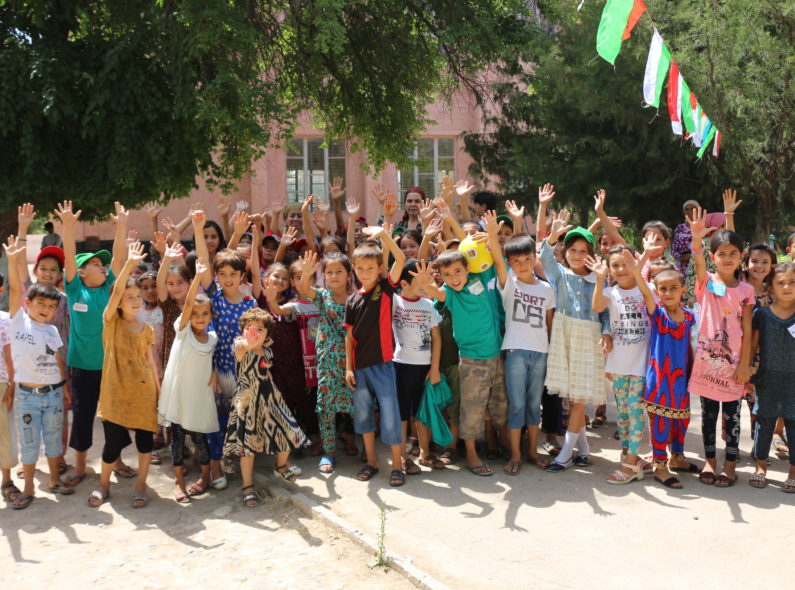
Third-grader Muslima Nazrimadova felt the motivating spark of these reading competitions. Initially, she was not passionate about reading, but when she met third-grader Omina Sharipova at an RWM summer camp, they quickly developed a spirited competition that nurtured her interest in reading.
“It was funny to compete with Muslima,” Omina said. “We both came to the summer camp to develop our speaking and reading skills and to read as many books as possible.”
Because of the friendly competition, Muslima is committed to improving her reading. “I will continue to compete with Omina to progress in reading. If she reads 10 books, I will read 20, and if she reads 20 books, I will read 30!” Muslima said.
Supporting Reading at Home
An early grade reading assessment conducted through the project found that the frequency with which families read together is a factor in determining if a student reads at the appropriate grade level. This finding means that the RWM summer camps could represent a space where parents could contribute to their children’s education.

